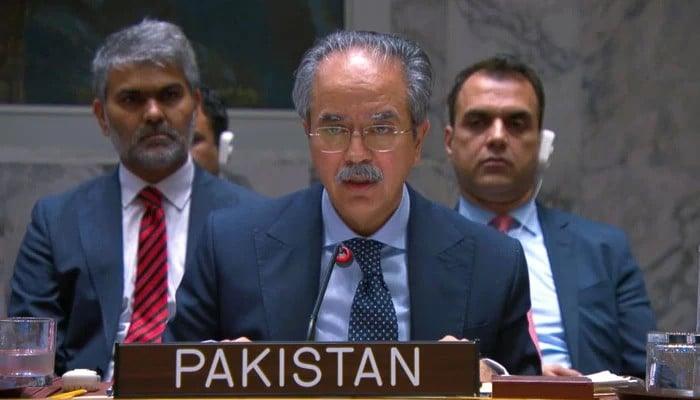Israel’s strikes on Iranian nuclear and military facilities have been described as a “serious danger and a serious threat” of peace, security and stability throughout the region and beyond, Pakistan told the UN Security Council during an emergency session called Friday.
Council 15 members adjusted its original schedule to tackle the rapidly evolving crisis and heard from the head of the UN Nuclear Guard Dog, who warned about the serious risks of both regional stability and nuclear security.
In his remarks, Ambassador Asim IFTIKHAR Ahmad, Pakistan’s regular representative of the UN, strictly condemned Israel’s “unjustified and uneven” aggression against Iran. He confirmed that Pakistan was in resolute solidarity with the Iranian government and people.
Iran’s Foreign Minister Abbas Araghchi had requested the Security Council’s meeting and stated that Israel had “now crossed any red line” and called on the international community to ensure that these crimes were not left unpunished.
Among those who support the request for the meeting were Pakistan, China and Russia.
In the light of escalating tensions, Ambassador Ahmad urged the Security Council to maintain his responsibility for enforcing international law and immediately stopping the aggression. He strongly called for the solution of the crisis through dialogue and diplomacy.
During the meeting, Rosemary Dicarlo, UN Sub-Secretary General of Political Affairs, informed the Council on the consequences of the attacks already felt throughout the region.
“I confirm the Secretary -General’s condemnation of any military escalation in the Middle East,” she said, calling on both Israel and Iran to exercise maximum restraint and avoid, “at all costs, a descent in a deeper and wider regional conflict.”
She also emphasized that military escalation had taken place just like “some significant diplomatic developments” unfolded, including the planned resumption of US-Iranian conversations in Oman, which Iran has now indicated that it will no longer participate.
Dicarlo called on all parties to remain engaged in diplomacy and said, “A peaceful decision through negotiations is still the best means of ensuring the peaceful nature of Iran’s nuclear program.”
She added, “We must avoid a growing combustion that could have enormous global consequences at all costs.”
Rafael Grossi, Director -General of International Atomic Energy Agency (IAEA), also informed the Council and said his agency was in constant contact with Iran’s Nuclear Regulatory Authority to assess the status of affected facilities and determine the broader effects on nuclear security and security.
He emphasized that nuclear places should be targeted under any circumstances. “Such attacks have serious consequences for nuclear security, security and protective measures as well as for regional and international peace and security,” Grossi said.
He added that he was ready to travel to the region as soon as possible to assess the situation and support security, security and non-spread efforts in Iran.
“It is clear that the only sustainable way forward for Iran, Israel, the entire region and the international community is a ground in dialogue and diplomacy to ensure peace, stability and cooperation,” Grossi concluded.
He also offered IAEA as a neutral platform where “facts prevail over rhetoric” and where technical commitment can replace escalation. “I confirm both my personal commitment and the Agency’s readiness to facilitate dialogue and support efforts that promote transparency, security and the peaceful solution of nuclear issues in Iran.”



